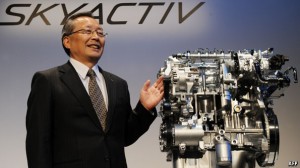My comment on Difference Engine: Born again
The article talks about Japanese motor companies’s innovation on new diesel engines. What they have done is just a good example of how Stakeholder Theory works. Consumers’ demand for high fuel efficiency cars encourages manufactures to develop better engines, the new engines burn less diesel, so they help consumers save money on fuel. The shareholders and financier will be attracted to invest more for the production of such a efficiency engine, so the new engines can probably help relieve the inflationary pressure caused by fuel price and can also protect the environment by reducing the gas emission because there will be more of them. Realizing the positive effects comes from the new technology, governments will try to encourage the production and consumption of high efficiency engines by offering subsidies or tax cut, therefore a virtuous circle is formed. More importantly, the company gets more profit from their more competitive products.In this case, almost all the skateholders have their own benefit from the innovation of diesel engine. All these benefits come from Mazda leader’s decision of developing high-efficiency diesel engines. This is how should a businessman fulfilling his own social responsibility, he managed to get all stakeholders work together toward better benefits. Think about if Mazda’s manager decided to devote their researching power to develop a more powerful but less efficiency engine for few racing fans, things will be totally different.
Source: http://www.economist.com/blogs/babbage/2013/07/diesels

